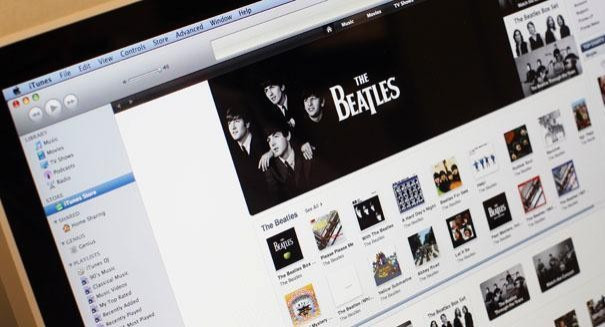Copyright Laws Relaxed: CD Copying Now Legal But DVD Ripping Still Outlawed
The government is to finally scrap archaic digital copyright laws that say it is illegal to transfer music from a CD to a computer or MP3 player for personal use, although sharing content with friends will still be outlawed.

Despite the enormous popularity of MP3 players such as the iPod and smartphones, it has always technically been illegal to copy music from a CD to your computer or other device, but the report does not address the copying, or 'ripping' of DVDs, which remains illegal.
While copying music from CDs to your computer will soon be legal, copying a film from a DVD will not be, because the law preventing users from breaking a DVD's TPM (Technical Protection Measures) remains in place.
Similar to DRM (Digital Rights Management), TPM restricts the copying of video content from a DVD to any other device, so while the change makes converting CDs to MP3 files legal, users will still have to buy digital films and TV programmes from the likes of iTunes if they want a copy for their computer or portable device.
Ebooks also have TPM, so they too cannot be transferred from one device to another, even for personal use.
Called Modernising Copyright, the report offers suggestions for DVD or Blu-ray owners who want to copy the disc content to another device:
"In the UK, if a person cannot carry out a permitted act due to a TPM, and the rights holder has refused to provide a 'workaround', the mechanism used is that a user may issue a notice of complaint to the Secretary of State (SoS).
"The SoS can issue 'directions' to ensure that the permitted act can be carried out. It is important to note that the SoS cannot simply authorise a user to circumvent TPMs; it would not be lawful under the Copyright Directive.
"Possible outcomes of a SoS intervention would include a direction to the user to purchase an existing digital copy that was usable for the purpose required, or that a rights holder provide the user with a particular excerpt from a work."
So essentially, the SoS would tell you to buy a digital copy from somewhere like iTunes. This, of course, helps to protect profits for the rights holders, who are worried that removing TPMs would result in mass copying and free distribution of their work.
Good business sense
Business secretary Vince Cable said the change was "not only common sense but good business sense." Adding: "Bringing the law into line with ordinary people's reasonable expectations will boost respect for copyright, on which our creative industries rely."
Cable added: "We feel we have struck the right balance between improving the way consumers benefit from copyright works they have legitimately paid for, boosting business opportunities and protecting the rights of creators."
The law is claimed to benefit consumers, but musicians and songwriters are less happy, claiming a levy on blank CDs and media players should be brought into compensate.
Rights holders asked Cable to introduce a levy, license or tax to devices like computers, phones and MP3 players "in order to compensate for this harm," as is the case in some European countries, like Spain.
The government rejected the idea of a tax on such copying equipment, saying that the change would have a "minimal impact on sales" of music, films and other content.
The report states: "Levies or other compensation are neither required nor desirable in the context of a narrow provision that causes minimal harm. Levies are an unnecessary and inefficient tax on consumers.
"Furthermore, particularly in the current economic climate, it is not right to extract more money from the pockets of hard pressed consumers."
The report also addressed the rules surrounding use of parody and caricature, which it says should be relaxed, recognising "that there is a growing trend for user-generated, often non-commercial, parody content on YouTube and similar websites."
The report said the relaxed rules should "strike a fair balance" and would be "unlikely to result in a significant loss of licensing revenue."
© Copyright IBTimes 2025. All rights reserved.






















